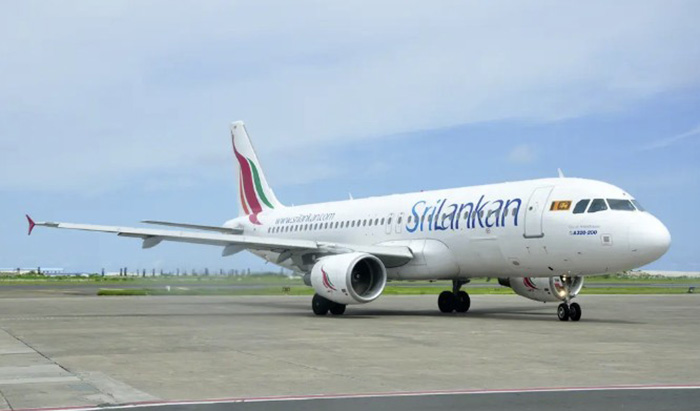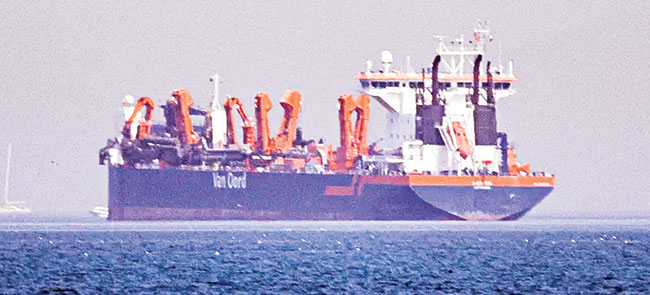Business
Why the Government Should Increase Tobacco Taxation in the Forthcoming Budget

A Win-Win Strategy:
by Harini Weerasekera
The COVID-19 pandemic has left many economies struggling to revive economic activity and boost growth. Economic stimulus packages of varying sizes, shapes and forms have been disbursed by governments around the world to keep their economies afloat. What this means is that governments of developing countries in particular, face extremely tough fiscal policy choices; in some cases, compelled to spend money that they do not necessarily have.
Sri Lanka is no exception to this. COVID-19 has pushed what was already a high spend-low revenue economy into further fiscal turmoil. IPS has stressed that getting the country’s fiscal house in order is the need of the hour, in order to effectively respond to the pandemic, on top of dealing with an already mounting debt burden.
When government finances are tight, policy solutions that can be leveraged to boost government revenue without threatening growth and which support additional pandemic-related spending in the coming years, are essential. Increasing tobacco taxation is an excellent example.
IPS Study on Tobacco Taxation
A recent study by IPS projects that government tax revenue can be boosted by LKR 37 billion by 2023, if taxes on cigarettes are streamlined and raised in line with inflation. Although the government assumed a policy stance of cutting taxes across the board when they came into power, excise taxation of sin-goods such as cigarettes is one area where it is still politically feasible to raise taxes in order to boost much needed revenue. For example, back in 2019, the government increased excise taxes on tobacco to offset an overall reduction in VAT rates on goods.
This month’s budget is therefore an opportune moment to increase tobacco taxation, which will simultaneously help raise revenue at a critical time for the country, and generate significant and positive health benefits that would flow from reducing smoking.
Why Cigarette Taxation?
Although tax rates on some types of cigarettes in Sri Lanka have been raised in recent years, the most-sold brand of cigarettes in the country remains affordable according to the World Health Organization (WHO) affordability index. Further, the tax structure for cigarettes is not streamlined, and tax policy changes have been implemented in an ad-hoc manner. What this means is that there is further space to reduce cigarette affordability by using appropriate tax policy. This will ease health costs to the government from tobacco related-illness which can then be redirected towards pandemic related health costs, whilst also securing additional tax revenue in these difficult times.
In order to do this, IPS recommends in our latest study, that the government and related institutions deploy an incremental approach to revising cigarette taxes over the next four years (2020-2023). Sri Lanka currently has a five-tier tax structure for cigarettes based on cigarette length, some of which remain affordable and accessible to the young and poor in particular. Adopting a uniform excise tax system that is periodically adjusted for changes in inflation, in line with the WHO Framework Convention for Tobacco Control (FCTC) protocol, will reduce overall affordability of all types of cigarettes.
Implementing these recommendations will result in Sri Lanka’s government revenue from cigarettes increasing by Rs 37 billion by 2023; cigarette consumption reducing from one billion sticks by 2023; and prevention of 140,000 premature deaths from cigarette consumption in the future.
Additionally, a forthcoming study by IPS finds that the net effect of tobacco control policies on national income is positive, as a result of consumers switching their spending from tobacco products to other goods and services.
A Link between Tobacco Taxation and Illicit Trade?
While industry lobbyists, the world over, are resistant to cigarette tax increases, and argue that increased taxes promote illicit tobacco trade and beedi consumption – the evidence shows otherwise. According to WHO FCTC Knowledge Hub research, there is a negative correlation between illicit trade share and cigarette prices, globally (Figure 1). Instead, it is the existence of informal trade channels, easily crossed borders, weak governance, ineffective customs/tax administration, corruption and complicity of producers/importers, among other reasons, that cause large-scale illicit trade of tobacco. Hence, illicit trade should be controlled through organizational changes in tax administration such as more investigations, more tax and customs officers, and technology, rather than by keeping cigarette taxes/prices low.
Similarly, there is concern that beedi consumption has risen due to tax increases on cigarettes. However, the Alcohol and Drug Information Centre (ADIC) trend surveys over the years have found that there is no pattern of switching from cigarettes to beedi in response to cigarette price increases. However, authorities should consider taxing beedis too; avoiding tax increases on cigarettes, on the other hand, will not aid in reducing consumption of either cigarettes or beedis.
Moreover, controlling the consumption of various tobacco products needs to be tackled using different strategies, as outlined by internationally recognized sources such as the WHO.
Business
SriLankan Airlines Update on Middle East Operations

03 March 2026; Colombo – As airspace in certain parts of the Middle East continues to remain closed due to the ongoing conflict, the following SriLankan Airlines flights scheduled to operate today have been cancelled:
Flight Route
UL 225 Colombo–Dubai
UL 226 Dubai–Colombo
UL 231 Colombo–Dubai
UL 232 Dubai–Colombo
UL 229 Colombo–Kuwait
UL 230 Kuwait–Colombo
UL 217 Colombo–Doha
UL 218 Doha–Colombo
UL 253 Colombo–Dammam
UL 254 Dammam–Colombo
UL 265 Colombo–Riyadh
UL 266 Riyadh–Colombo
We sincerely appreciate our passengers’ understanding and patience as these cancellations are implemented in the interest of their safety and wellbeing.
For more information, please contact: 1979 (within Sri Lanka); +94 11 777 1979 (international); WhatsApp +94 74 444 1979 (chat only); your travel agent; or visit www.srilankan.com
Business
Middle East escalation sends oil soaring; Sri Lanka faces price shock despite assurances on supply

Global oil prices surged sharply yesterday following coordinated US and Israel-backed strikes on Iran, and Tehran’s retaliatory attacks targeting US interests in the region, alongside escalating hostilities involving Hezbollah in Lebanon. The renewed instability in the Middle East – the artery of the world’s energy supply – has sent tremors through financial markets and triggered fresh anxiety in oil-importing nations such as Sri Lanka.
Brent crude climbed steeply in early Asian trading, with traders pricing in the risk of supply disruptions through critical maritime chokepoints, particularly the Strait of Hormuz, through which nearly a fifth of global oil passes. Market analysts say the spike reflects not only immediate supply fears but also the potential for prolonged geopolitical tension that could keep prices elevated for months.
Meanwhile, Asian equities reacted nervously to the unfolding crisis. Major indices across the region retreated as investors fled risk assets, concerned that higher energy costs could dampen growth and reignite inflationary pressures.
Asian oil and gas stocks – the only winner in Asian equity markets – rallied strongly, reflecting expectations of higher revenues amid rising crude prices. This divergence of falling broader markets alongside rising oil shares signals investor anticipation of higher inflation and weaker consumer demand in emerging markets like Sri Lanka.
Meanwhile, reports of increased Chinese crude purchases are further compounding market anxiety. If Beijing accelerates buying to secure strategic reserves in anticipation of supply constraints, global prices could climb even further because China’s procurement strategy has great influence on the world oil price.
“Should Chinese demand rise while Middle Eastern exports face disruption, the supply-demand imbalance could tighten considerably, amplifying volatility in global energy markets”, say global energy market analysts.
In Sri Lanka, long queues have begun forming at fuel stations amid fears of shortages and higher pump prices once new shipments arrive. The government has sought to calm public nerves, stating that sufficient stocks are available for approximately one month and that fresh supplies are being sourced from India and Singapore.
Deputy Minister of Tourism, Dr. Ruwan Ranasinghe said that as Sri Lanka imports refined products primarily from India and trading hubs such as Singapore, direct disruptions to Middle Eastern sea routes would not immediately interrupt supply chains. He maintained that there is no cause for panic buying.
In an unusual show of political maturity, Prasad Siriwardena, an Opposition MP from the Samagi Jana Balawegaya (SJB) urged the public to remain calm and refrain from hoarding, warning that artificial shortages could emerge if panic-driven stockpiling spreads.
However, former minister Wimal Weerawansa criticised the government for failing to build a strategic reserve of at least three months, arguing that Sri Lanka’s total dependence on imported fuel leaves it dangerously exposed to prolonged geopolitical shocks.
Weerawansa contended that the government failed to anticipate the likelihood of US-Iran tensions escalating into direct confrontation and should have proactively guided petroleum authorities to secure adequate reserves in advance.
Meanwhile, an independent analyst told this reporter on the condition of anonymity that the global economic spillover could have wide-ranging consequences on Sri Lanka, outlining five factors.
Energy costs that feed into transportation, manufacturing and food prices
Tighter monetary policy risks as the Central Bank may hesitate to cut rates if inflation resurges
Slower growth as consumers and businesses reduce spending when energy costs rise
A widening trade deficit as Sri Lanka would face increased import bills
Pressure on the Rupee as increased dollar outflows for fuel imports could strain foreign exchange reserves
In conclusion, he said, “One can only hope that diplomacy prevails before oil’s surge turns into a sustained economic storm for the global economy.”
by Sanath Nanayakkare
Business
How ‘distant wars can quickly arrive at the domestic pump’

The harsh economic realities behind soothing words
Sri Lanka’s fragile economic recovery faces a renewed external threat as escalating conflict involving Iran sends global oil prices sharply higher, raising concerns over inflation, foreign reserves and fiscal stability.
While authorities insist there is no immediate fuel shortage, economists warn that prolonged instability in the Middle East could trigger a familiar and painful chain reaction in an import-dependent economy still recovering from its worst financial crisis in decades.
The state-run Ceylon Petroleum Corporation (CPC) confirmed that the country currently holds sufficient petrol and diesel stocks for more than a month.
Energy Minister Eng. Kumara Jayakody assured that scheduled shipments remain unaffected and urged the public to refrain from panic buying, warning that artificial demand could disrupt smooth distribution.
But behind those reassurances lies a harsher economic reality: Sri Lanka does not need a physical fuel shortage to suffer — a sustained spike in global crude prices alone could be enough.
Market jitters intensified amid fears that any escalation could threaten shipping through the Strait of Hormuz, the narrow maritime corridor through which a significant share of the world’s oil supply passes daily. Even speculation of disruption has historically been sufficient to push prices sharply upward.
Sri Lanka sources refined fuel from multiple markets, including India and Southeast Asia. However, global benchmark prices ultimately determine import costs. If crude prices remain elevated, the country’s monthly fuel import bill could surge — placing fresh strain on dollar reserves.
Higher oil prices would ripple across the entire economy. Transport, electricity generation, manufacturing, agriculture and food distribution are all energy-sensitive sectors. A sustained price increase could reverse recent gains in inflation control.
The Central Bank of Sri Lanka has worked to stabilise inflation and the rupee through tight monetary discipline. Analysts caution that a renewed oil shock could complicate this effort, widening the trade deficit and pressuring the exchange rate.
“Sri Lanka is structurally vulnerable to energy price shocks. Even without direct supply disruption, higher global prices immediately translate into macroeconomic stress, a senior economic analyst said.
The government is currently operating under strict fiscal consolidation targets as part of its recovery programme. A rising fuel bill could expand subsidy pressures or force politically sensitive fuel price adjustments.
Any increase in administered fuel prices would inevitably feed into cost-of-living pressures, testing public tolerance amid ongoing austerity.
Beyond oil markets, instability in the Middle East carries another risk: remittances. The Gulf region remains a key source of foreign employment for Sri Lankans and a crucial inflow of foreign exchange.
Any economic slowdown or labour disruption in the region could dampen remittance flows, reducing one of the country’s most stable dollar lifelines.
An energy expert said for Sri Lanka, the Iran conflict is not merely a distant geopolitical event. It is a potential economic stress test at a moment when stability remains hard-won.
“Whether this turns into a temporary price spike or a prolonged oil shock will determine how severely it tests the country’s recovery trajectory. For now, policymakers are watching global markets closely — aware that in today’s interconnected economy, distant wars can quickly arrive at the domestic pump.”
By Ifham Nizam
-

 Opinion5 days ago
Opinion5 days agoJamming and re-setting the world: What is the role of Donald Trump?
-

 Features5 days ago
Features5 days agoAn innocent bystander or a passive onlooker?
-

 Features6 days ago
Features6 days agoRatmalana Airport: The Truth, The Whole Truth, And Nothing But The Truth
-

 Business7 days ago
Business7 days agoDialog partners with Xiaomi to introduce Redmi Note 15 5G Series in Sri Lanka
-

 Features2 days ago
Features2 days agoBrilliant Navy officer no more
-

 Features7 days ago
Features7 days agoBuilding on Sand: The Indian market trap
-

 Opinion7 days ago
Opinion7 days agoFuture must be won
-

 Opinion2 days ago
Opinion2 days agoSri Lanka – world’s worst facilities for cricket fans












